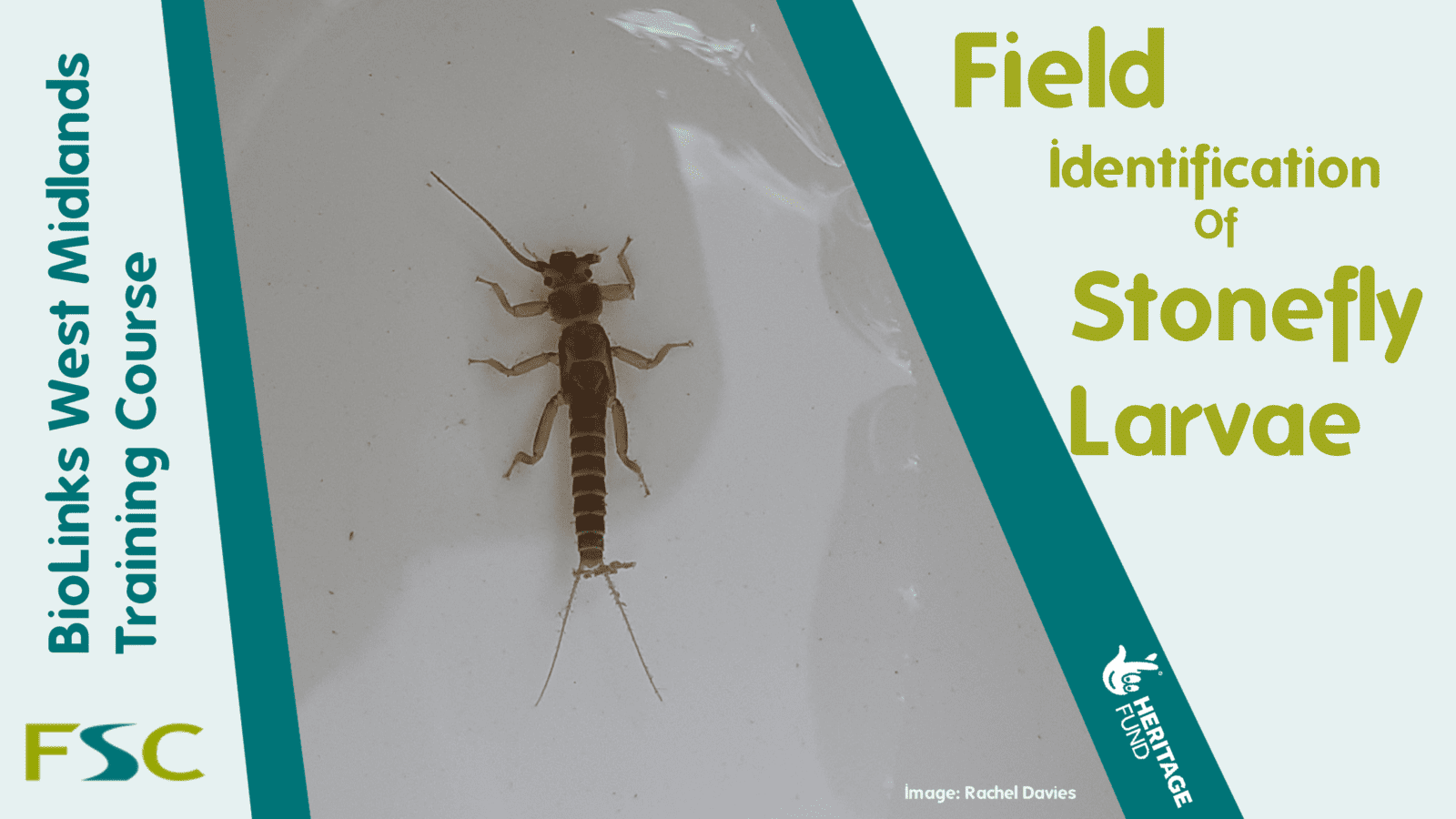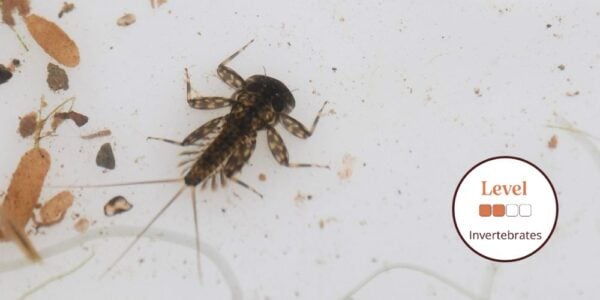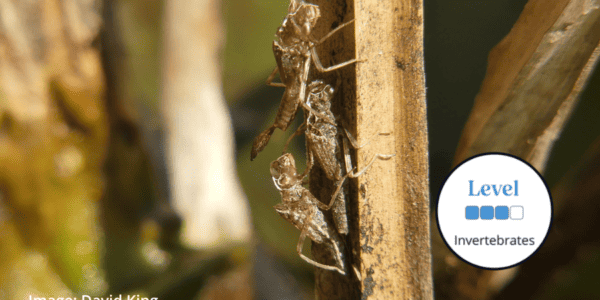There are 34 species of stonefly in the UK, with the larvae of many of those being easily identified in the field. Join our expert tutor in the field to search for, find, and discuss the identification features of a variety of UK stonefly species that can be identified using a hand lens.
This course combines classroom-led learning and outside learning opportunities led by an expert tutor to give learners the skills to be able to identify distinctive species of stonefly in the field.
- Certificate upon course completion.
- Please email [email protected] if you have any questions.
- This course is limited to the identification of distinctive species that can be identified in the field.
This course is aimed at adults only and course attendees must be at least 18 years old in order to attend.
Please note that this course involves travelling to a field site in the afternoon. In course transport in the form of a minibus will be provided.
What will be covered during this course?
- An introduction to stonefly classification and how their morphology and ecology are interconnected.
- Identification of distinctive species of stoneflies using a hand lens and field characters.
- Support from an expert stonefly tutor when practicing field identification techniques.
- Guidance on how to submit stonefly records.
See the ‘Example Timetable’, ‘What’s Included’ and ‘Before You Attend’ sections below for more information about this course.
Course Fees
Regular Price: £75 For professionals and residents outside of the UK. Select ‘Attendee: In Person’ Sold Out
Subsidised Price: £10 Subsidised by the FSC BioLinks project for non-professionals eg. volunteers, biological recorders, wildlife gardeners, amateur naturalists and students. Available to UK residents only. Select ‘Attendee Subsidised: In Person’
Tutor: Craig Macadam
Craig Macadam has been studying and recording freshwater invertebrates for over 25 years. His particular specialism is mayflies, stoneflies and caddisflies, collectively known as 'riverflies'. Craig is the national recorder for mayflies and stoneflies and a founder member of the Riverfly Partnership. He co-authored the Field Studies Council pictorial key to mayflies and the fold out chart for stonefly families.
Covid Measures
In order to keep our customers and staff safe, we ask that anyone attending our centres:
- Wears a face covering when in shared indoor space (unless exempt).
- Maintains social distancing.
- Cleans their hands regularly.
- Takes a Covid-19 test before they arrive.
Book with Confidence
We understand the difficulties of making plans in the current situation when guidelines continue to change, and insurance conditions are being tightened. In response, we will continue to offer additional flexibility. Find out more here
Example Timetable
- Please arrive in time for the course to start promptly at 10:00 am.
- Refreshments will be available from 9.45 am.
- The course will end at 4:00 pm.
What's Included
- 6 hours of tuition.
- Certificate of attendance.
- Access to identification resources.
Bursaries and Subsidies
FSC BioLinks
FSC BioLinks is an exciting project for FSC in the South East and West Midlands, bringing together existing volunteers with skills in biological recording and identification, and new volunteers.
This project provides subsidised training courses, learning opportunities and digital tools focussed on invertebrate identification for anyone involved or interested in biological recording, to build and strengthen the community.
Invertebrates provide us with many useful ecosystem services, like pollination and decomposition, which we cannot survive without but their numbers are declining. Few people know how to identify or record invertebrates meaning there is a lack of data.
We are delighted to have been awarded a grant of £1.23 million from the National Lottery Heritage Fund for this project.
Before You Attend
Getting to FSC Bishops Wood
FSC Bishops Wood, Crossway Green, Stourport-on-Severn DY13 9SE
- By car from Kidderminster: (M5, A38, A449 southbound) On the M5 heading southbound coming off at junction 5, taking the third exit on the roundabout to get onto the A38. at the first roundabout take the third exit onto Kidderminster Road going straight over the next roundabout sticking to Kidderminster Road. At the second left turn to follow Doverdale Lane. Once you have come to a sign turning right onto the A449 take it until you get to the Mitre Oak pub on your left. Take the first exit on the roundabout onto Bishops Wood Lane, finally taking the first left on you will arrive at Bishops Wood Field Centre.
- By car from Worcester: (M5, A449 northbound) On the M5 heading northbound, take Junction 6 to Worcester/ Kidderminster taking the second exit heading for the A449 northbound, continuing for 9 miles. At the roundabout with the Mitre Oak pub take the first exit onto Stourport Road. Take the first left onto Bishops Wood Lane, finally taking the first left on you will arrive at Bishops Wood Field Centre.
- By train: The nearest station to the centre is Hartlebury. From here, it is a two-mile walk to FSC Bishops Wood, or a short taxi ride.
What to bring
- Notebook and pencil
- Lunch
- Hand lens (if you have one)
Please wear suitable clothing for the weather (such as waterproofs) and wear suitable footwear (walking boots or wellies) as we will be out on site for some of the day.
This BioLinks course has aspects that will be taught outdoors with walking to field sites over uneven ground. No special preparation is required providing you are used to gentle exercise. If you have any concerns or questions about access or the activities involved, please get in touch.
Please note that this course will involve using specimens that have been killed and preserved.
There will be a member of staff with first aid training and access to a first aid kit on site. If you have special medical requirements please let us know as soon as possible so we can plan the course.
Sorry this course has ended



